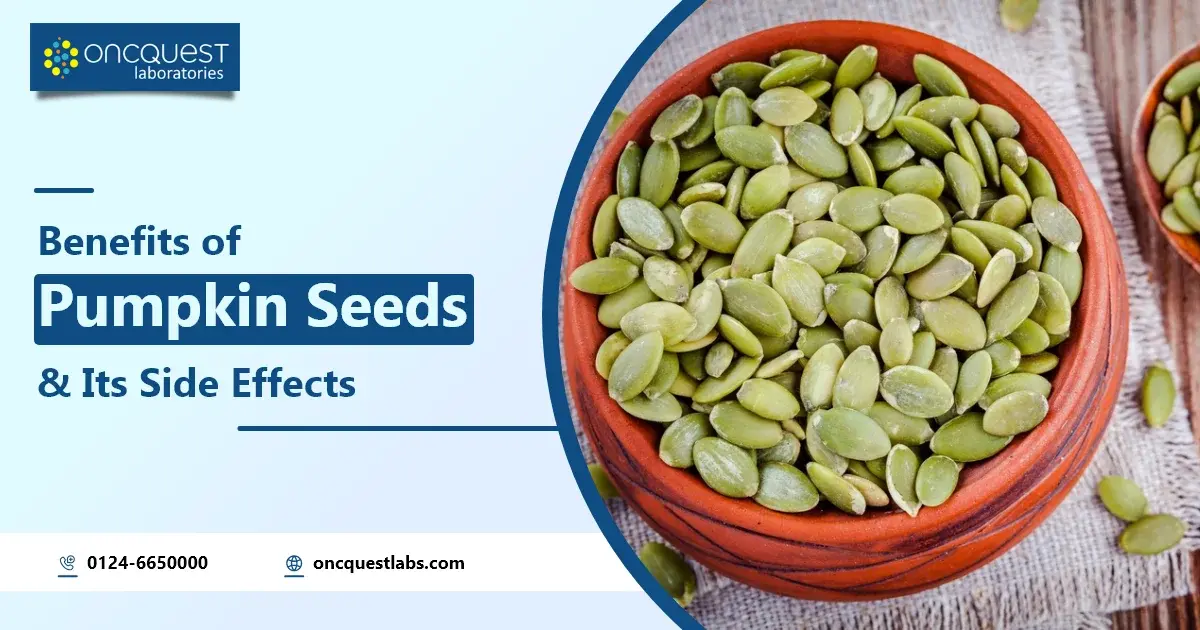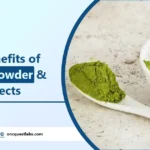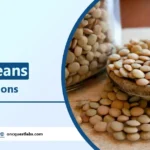Pumpkin seeds, also known as pepitas, have gained immense popularity in the health and wellness community for their impressive nutritional profile and numerous health benefits. These small, flat, green seeds are packed with essential vitamins, minerals, and antioxidants that contribute to overall well-being. From boosting the immune system to promoting heart health and improving sleep quality, pumpkin seeds offer a wide range of advantages when included in a balanced diet.
However, as with any food, it’s essential to be aware of potential side effects and consume them in moderation. Overconsumption or specific dietary sensitivities can lead to digestive issues, allergic reactions, and interactions with certain medications. Understanding pumpkin seeds’ benefits and possible side effects is crucial for making informed dietary choices.
In this article, we will delve into the detailed nutritional profile of pumpkin seeds, explore their numerous health benefits, discuss various ways to incorporate them into your diet, and highlight potential side effects. By the end, you’ll have a comprehensive understanding of how pumpkin seeds can enhance your health and how to enjoy them safely.
Contents
- 1 Nutrition Value of Pumpkin Seeds
- 2 Benefits of Eating Pumpkin Seeds
- 3 Potential Side Effects of Pumpkin Seeds
- 3.1 Digestive Issues
- 3.2 Allergic Reactions
- 3.3 Interaction with Medications
- 3.4 Weight Gain
- 3.5 Potential for Toxicity
- 3.6 Phytate Content
- 3.7 Stomach Ache
- 3.8 Laxative Effect
- 3.9 Risk of Choking
- 3.10 High Sodium Content in Processed Seeds
- 3.11 Ways to Incorporate Pumpkin Seeds into Your Diet
- 3.12 Tips for Freshness and Nutritional Benefits
- 4 Conclusion
- 5 Frequently Asked Questions (FAQs)
Nutrition Value of Pumpkin Seeds
Here is a table outlining the nutritional value of pumpkin seeds per 100 grams:
| Nutrient | Amount per 100 grams |
| Calories | 559 kcal |
| Protein | 30.23 g |
| Total Fat | 49.05 g |
| Saturated Fat | 8.659 g |
| Monounsaturated Fat | 15.987 g |
| Polyunsaturated Fat | 20.975 g |
| Carbohydrates | 10.71 g |
| Dietary Fiber | 6.0 g |
| Sugars | 1.40 g |
| Calcium | 46 mg |
| Iron | 8.82 mg |
| Magnesium | 592 mg |
| Phosphorus | 1233 mg |
| Potassium | 809 mg |
| Sodium | 7 mg |
| Zinc | 7.81 mg |
| Copper | 1.343 mg |
| Manganese | 4.543 mg |
| Selenium | 9.4 µg |
| Vitamin C | 1.9 mg |
| Thiamin (Vitamin B1) | 0.273 mg |
| Riboflavin (Vitamin B2) | 0.153 mg |
| Niacin (Vitamin B3) | 4.987 mg |
| Pantothenic Acid (B5) | 0.750 mg |
| Vitamin B6 | 0.143 mg |
| Folate (Vitamin B9) | 58 µg |
| Vitamin E | 2.18 mg |
| Vitamin K | 7.3 µg |
Pumpkin seeds are a rich source of protein, healthy fats, fiber, vitamins, and minerals, making them a nutritious addition to a balanced diet.
Benefits of Eating Pumpkin Seeds
Boosts Immune System
Pumpkin seeds are rich in zinc, a mineral crucial for maintaining a robust immune system. Zinc helps in the development and activation of T-lymphocytes, a type of white blood cell that fights infections. Adequate zinc intake can reduce the duration and severity of common colds and support overall immune function.
Improves Heart Health
The healthy fats, magnesium, and antioxidants in pumpkin seeds contribute significantly to heart health. Omega-3 and omega-6 fatty acids help reduce bad cholesterol (LDL) levels and increase good cholesterol (HDL) levels. Magnesium aids in regulating blood pressure, while antioxidants prevent oxidative stress, which can damage blood vessels and lead to cardiovascular diseases.
Promotes Prostate Health
Pumpkin seeds have long been used as a natural remedy for prostate health. They contain high levels of zinc and phytosterols, which can help reduce prostate enlargement and improve urinary function. Studies suggest that pumpkin seeds may help prevent benign prostatic hyperplasia (BPH), a condition characterized by an enlarged prostate.
Enhances Sleep Quality
Pumpkin seeds are an excellent source of tryptophan, an amino acid that the body converts into serotonin and melatonin, the sleep hormone. Consuming pumpkin seeds can promote better sleep quality and help manage sleep disorders. A small handful before bedtime can help ensure a restful night.
Supports Bone Health
Magnesium is essential for bone formation, and pumpkin seeds are one of the best natural sources of this mineral. Adequate magnesium intake supports bone density and helps prevent osteoporosis. In addition, pumpkin seeds provide phosphorus, another critical mineral for bone health.
Regulates Blood Sugar Levels
The high magnesium content in pumpkin seeds plays a vital role in blood sugar regulation. Magnesium helps improve insulin sensitivity and glucose metabolism, making it beneficial for individuals with diabetes or those at risk of developing diabetes. Studies have shown that regular consumption of pumpkin seeds can help maintain stable blood sugar levels.
Reduces Inflammation
Pumpkin seeds contain antioxidants like vitamin E and carotenoids, which have powerful anti-inflammatory properties. These antioxidants neutralize free radicals and reduce inflammation in the body. Chronic inflammation is linked to various diseases, including arthritis, heart disease, and cancer, so reducing inflammation can significantly improve overall health.
Aids in Weight Management
Pumpkin seeds are high in fiber and protein, which can help promote satiety and reduce overall calorie intake. The fiber aids digestion and helps prevent overeating by making you feel full for longer periods. Additionally, the healthy fats in pumpkin seeds can support metabolic health and assist in weight management.
Improves Hair and Skin Health
The rich nutrient profile of pumpkin seeds, including vitamins A, E, zinc, and omega-3 fatty acids, contributes to healthy hair and skin. Vitamin E is a powerful antioxidant that protects skin cells from oxidative damage, while zinc promotes collagen production and skin repair. The healthy fats in pumpkin seeds also help maintain skin elasticity and hydration.
Supports Mental Health
Pumpkin seeds contain essential nutrients that support brain function and mental health. Magnesium helps regulate neurotransmitters that control mood and prevent depression. The tryptophan in pumpkin seeds boosts serotonin levels, improving mood and reducing anxiety. Furthermore, the antioxidants in pumpkin seeds protect brain cells from damage and support cognitive function.
Potential Side Effects of Pumpkin Seeds
While pumpkin seeds offer numerous health benefits, it’s important to be aware of potential side effects and consume them in moderation. Here are some detailed explanations of the possible side effects associated with pumpkin seeds:
Digestive Issues
Consuming large quantities of pumpkin seeds can lead to digestive problems. The high fiber content, while beneficial in moderate amounts, can cause gastrointestinal discomfort when eaten in excess. Symptoms may include bloating, gas, constipation, or diarrhea. To avoid these issues, it’s best to introduce pumpkin seeds into your diet gradually and drink plenty of water to help the fiber move through your digestive system.
Allergic Reactions
Some individuals may be allergic to pumpkin seeds. Allergic reactions can range from mild to severe and may include symptoms such as itching, hives, swelling, and difficulty breathing. In rare cases, a severe allergic reaction known as anaphylaxis can occur, which requires immediate medical attention. If you have a known seed allergy, it’s crucial to avoid pumpkin seeds and consult with a healthcare provider before trying them.
Interaction with Medications
Pumpkin seeds can interact with certain medications, potentially affecting their efficacy. For example, pumpkin seeds have a natural anticoagulant effect, which can enhance the effects of blood-thinning medications like warfarin and increase the risk of bleeding. Additionally, the high magnesium content in pumpkin seeds may interfere with the absorption of certain medications. It’s important to consult with a healthcare provider if you are taking any medications to ensure that consuming pumpkin seeds is safe for you.
Weight Gain
Although pumpkin seeds are nutrient-dense, they are also high in calories and fats. Consuming them in large quantities without accounting for their caloric content can lead to weight gain, especially if you are not balancing your overall calorie intake. Moderation is key to enjoying the health benefits of pumpkin seeds without the risk of unwanted weight gain.
Potential for Toxicity
Pumpkin seeds contain a small amount of cucurbitacin, a compound that can be toxic in large quantities. While the levels in pumpkin seeds are generally considered safe, excessive consumption could lead to toxicity, causing symptoms such as nausea, vomiting, and diarrhea. It’s essential to consume pumpkin seeds in moderation to avoid any potential risks.
Phytate Content
Phytates, also known as anti-nutrients, are present in pumpkin seeds and can inhibit the absorption of certain minerals such as zinc and iron. While the impact is minimal when pumpkin seeds are consumed as part of a balanced diet, excessive intake could potentially lead to mineral deficiencies over time. Soaking or roasting pumpkin seeds can help reduce their phytate content and improve mineral absorption.
Stomach Ache
Eating pumpkin seeds on an empty stomach or in large amounts can cause stomach aches and discomfort. This is due to their high fiber and fat content, which can be harder to digest in large quantities. To minimize the risk of stomach aches, it’s best to consume pumpkin seeds in smaller portions and alongside other foods.
Laxative Effect
Pumpkin seeds have a mild laxative effect due to their fiber content. While this can be beneficial for preventing constipation, excessive consumption can lead to loose stools or diarrhea. If you experience these symptoms, reducing your intake of pumpkin seeds and monitoring your body’s response may be helpful.
Risk of Choking
Pumpkin seeds, especially when consumed whole, pose a choking hazard, particularly for young children, elderly individuals, or those with swallowing difficulties. It’s important to chew them thoroughly or opt for ground or shelled versions to minimize this risk.
High Sodium Content in Processed Seeds
Many commercially available pumpkin seeds are roasted and salted, which can significantly increase their sodium content. High sodium intake is associated with elevated blood pressure and an increased risk of cardiovascular diseases. To avoid excessive sodium intake, choose unsalted or lightly salted pumpkin seeds and be mindful of your overall sodium consumption from other dietary sources.
Ways to Incorporate Pumpkin Seeds into Your Diet
Pumpkin seeds are versatile and nutritious, making them a great addition to your meals. Here are some easy ways to include them in your diet:
Raw Pumpkin Seeds: Enjoy raw seeds as a crunchy snack or mix them with nuts and dried fruits for a homemade trail mix.
Roasted Pumpkin Seeds: Enhance their flavor by roasting. Toss seeds with olive oil and seasonings, then roast at 300°F (150°C) for 20-30 minutes. Use them as a snack or add to salads, soups, and yogurt.
Pumpkin Seed Butter: Make your own by blending raw or roasted seeds until smooth. Use as a spread on toast, a dip for fruits and veggies, or in smoothies and baked goods.
Pumpkin Seed Oil: Drizzle over salads, pasta, or roasted veggies. Use as a finishing oil for soups and stews, or add to smoothies for a nutritional boost.
Pumpkin Seed Powder: Grind seeds into powder and add to smoothies, oatmeal, yogurt, or use as a flour substitute in baking recipes like pancakes and muffins.
Tips for Freshness and Nutritional Benefits
- Storage: Keep seeds in an airtight container in a cool, dark place. Refrigerate or freeze for extended shelf life.
- Soaking and Sprouting: Soak seeds overnight to enhance digestibility and nutrient absorption. Sprouted seeds can be eaten raw or lightly roasted.
- Moderation: Consume in moderation due to high calorie and fat content. A small handful (about 1 ounce or 28 grams) per day is reasonable.
Incorporate pumpkin seeds into your diet to enjoy their health benefits and add flavor, texture, and nutrition to your meals.
Conclusion
Pumpkin seeds are a nutrient-dense superfood that offers a wide array of health benefits. Rich in essential vitamins, minerals, and antioxidants, they can help boost the immune system, improve heart health, promote prostate health, enhance sleep quality, support bone health, regulate blood sugar levels, reduce inflammation, aid in weight management, and improve hair and skin health. However, it is important to consume them in moderation to avoid potential side effects such as digestive issues, allergic reactions, interactions with medications, and weight gain. By understanding both the benefits and potential risks, you can incorporate pumpkin seeds into your diet in a balanced and informed way to maximize their positive impact on your health.
Frequently Asked Questions (FAQs)
What are the main nutritional benefits of pumpkin seeds?
Pumpkin seeds are rich in protein, healthy fats, fiber, vitamins (such as Vitamin E and B vitamins), and minerals (including magnesium, zinc, and iron). They also contain antioxidants and phytosterols that contribute to overall health.
How can pumpkin seeds benefit my heart health?
Pumpkin seeds are high in healthy fats, particularly monounsaturated and polyunsaturated fats, which help lower bad cholesterol (LDL) and raise good cholesterol (HDL). They also contain magnesium, which helps regulate blood pressure, and antioxidants that prevent oxidative stress.
Are pumpkin seeds good for sleep?
Yes, pumpkin seeds are a good source of tryptophan, an amino acid that the body converts into serotonin and then into melatonin, the sleep hormone. Consuming pumpkin seeds can promote better sleep quality.
Can pumpkin seeds help with weight management?
Yes, pumpkin seeds are high in protein and fiber, which promote feelings of fullness and can help reduce overall calorie intake. However, they are also calorie-dense, so it’s important to consume them in moderation.
What are the potential side effects of eating pumpkin seeds?
Potential side effects of consuming pumpkin seeds include digestive issues (such as bloating and gas), allergic reactions, interactions with medications, weight gain from excessive caloric intake, and the risk of aflatoxin contamination.





